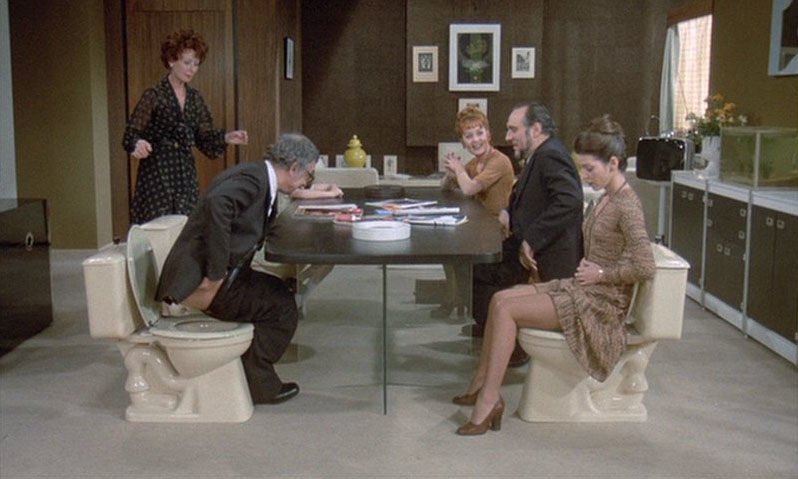Existentialism
Living Authentically - Your Choices And Your Responsibility
Rising above your circumstances and framing your own meaning in events
What Is Existentialism?
Existentialism is a movement as much as it is a philosophy and is grounded in the work of Kierkegaard and Nietzsche in the 19th century.
Existentialism:
- Views human existence as having no meaning other than that which you choose to give it, and
- Is about living life authentically by making your own choices for which you alone accept total responsibility.
It gained traction and became fashionable in the mid-20th century. This was the post-war era of the rejection of absolutism, and a period of systemic challenges to the political and societal status quo. It was also the time of the emergence of the “swinging sixties”.
Existentialism provided a language for what was seen as the problem of life as a human being faced with a bewildering array of choices, in a world of absurdity devoid of any inherent meaning, and for which you hold total responsibility.
The
leading lights of this modern movement were the French writers and philosophers
Jean-Paul Sartre, Simone de Beauvoir, and Albert Camus.
“Existentialism is an attitude that recognizes the unresolvable confusion of the the human world, yet resists the all-too-human temptation to resolve the confusion by grasping toward whatever appears or can be made to appear firm or familiar… The existential attitude begins with a disoriented individual facing a confused world that he cannot accept."[Robert Solomon].
Existentialism - Key Point Summary
Existentialism - The Big Ideas
[1] Existence Precedes Essence - i.e. We start life as a blank slate

Sartre argued that one of the foundational ideas of existentialism is that existence precedes essence. In simple terms this means that you start life "as a clean slate".
Therefore
- existentialism postulates - no external agency such as God, religion,
state, society or family can have a predetermined view of who you really
are and the shape and nature of your place in life, it is up to you to make your own conscious choices.
This perspective flies in 180 degree opposition to the classical philosophical view - traceable back to Aristotle - that essence precedes existence, that is to say that everything has a predetermined set of qualities that define what it is, and from the point of conception or inception that thing will develop into its predetermined - or encoded - shape, place and function.
Commentary:
- On first sight, the statement "existence precedes
essence" is liberating and empowering in that it opens the door to a wider range of possibilities than we may have previously considered when constrained by the views and expectations of external agencies.
- As with most ideas from existentialism, on close examination in a wider context and from a multi-disciplinary perspective, the reality is more blurred and blended than the dramatic statement/sound bite that "existence precedes essence" allows for.
- For example, "existence precedes essence" ignores the role and function of genetics. So, whilst on the one hand I may make a conscious choice to be a world class athlete or a world class brain surgeon the reality is that my choices are delineated by my physical and mental attributes and capabilities, and whilst there is no inevitability about the choices I may make, there are inherent limitations.
- I will address this point, about closer examination from wider perspectives in more depth, later in this article. For now I just want to flag the point that in my considered view:
[2] The Absurd - i.e. Life is tough and apparently meaningless so we will call it absurd
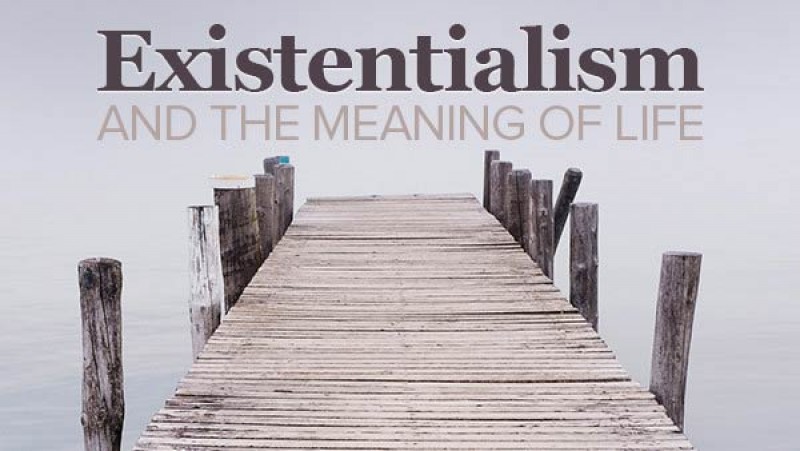
In the face of the apparent randomness, injustice, unfairness and meaninglessness of life, existentialism views life as absurd.
The existentialist position on the absurd is echoed in the cry of the incalculable sufferings of countless people throughout the mists of time:
"Why me?"
"Why my child/partner/parent/lover...?"
"WHHYYYYY....!?"Existentialism rejects the idea that this somehow must be the will of God/Joss/Fate and understands that because
of the world's absurdity, anything can happen to anyone at any time and a
tragic event could cause any of us to face this absurdity.
The existentialist therefore concludes that in the face of all this the only valid response is to see meaning where we choose to see it.
Commentary:
- The chaos, despair and destructiveness of the world as we often experience it is undeniable and frequently inexplicable in its randomness. Therefore to conclude that it is absurd is understandable but frankly naive.
- That we can not see a meaning, point or purpose does not mean there isn't one, it simply means that it is beyond our grasp i.e. we don't know and we don't know what we don't know, nor do we have the wherewithal to determine how we could know.
- So, rather than adopting the petulant posture and stating "it's absurd" the more reflective perspective is one of humility that says "I don't know" and that has the grace to accept that "I don't know".
- The existentialist conclusion, that the meaning of an event or situation is what we choose it to be, is a practical and empowering position to adopt, and one which I support.
- However,
the framing of that meaning needs to be exercised with discernment and
care, and aligned with your values and sense of purpose in life.
- To assign a meaning based on wish fulfillment or magical thinking, whilst gratifying in the short term may cause more damage than you are seeking to mitigate -in the longer term.
[3] Facticity and Transcendence i.e."Rising above your circumstances"
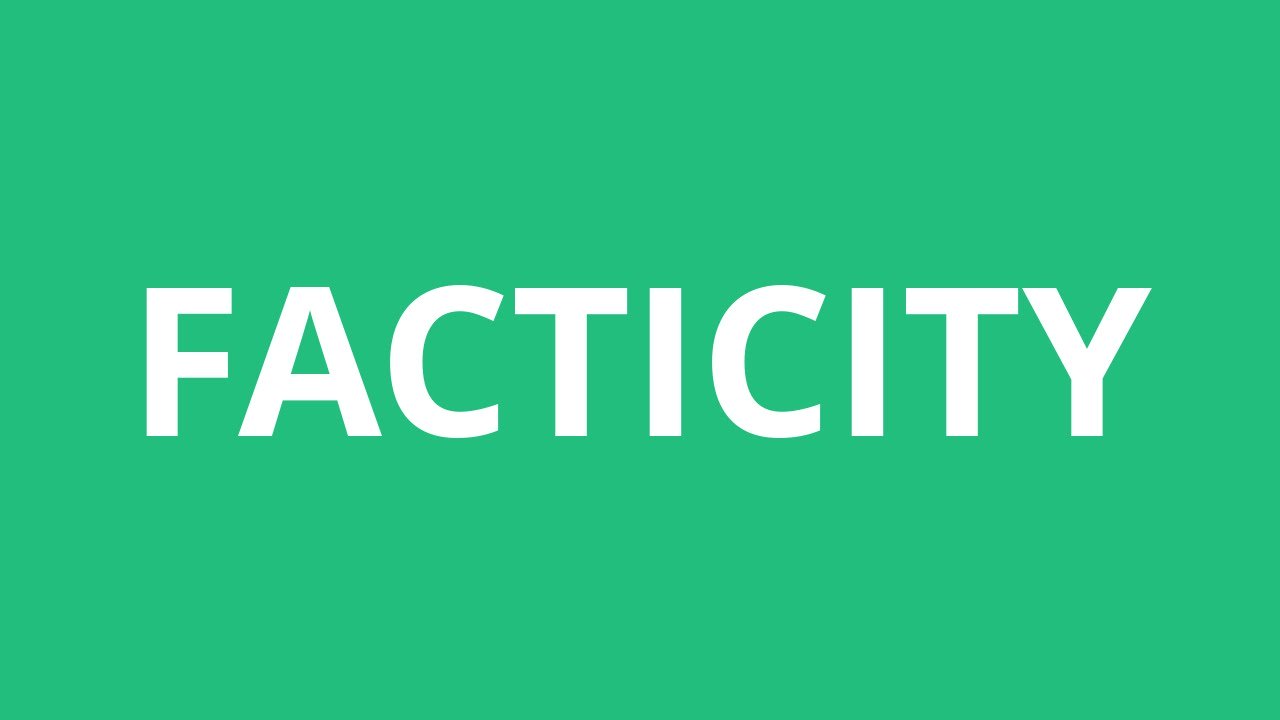
Facticity refers to the quantitative aspects of your life such as your age, gender, sexual orientation, ethnicity, life situation, where you live and what you do for a living; and transcendence refers to the qualitative aspects of your life which are your view of yourself in those facts.
Facticity describes and labels your situation, role and circumstances but it does not define you - unless you choose to see yourself that way.
Sartre gave the example of a waiter who epitomises the perfect waiter in all aspects. So whilst he is fulfilling the role of waiter he sees himself, and he defines himself, as a waiter. When he leaves work, if he still identifies himself and behaves as the perfect waiter he is self-identifed with the circumstances [facticity] of his life.
But, if he puts off that persona and becomes "himself", and thus acts and behaves in a different way, he has transcended the facts of his working life.
You are defined, or expressed, by your spirit, by how you see yourself, the view you take of the facts of your life.
The ability to take such a stance is what existential philosophers call “transcendence.”
Commentary:
- For a non-academic lay person, such as myself, facticity is a hard word to understand, or to be more accurate most of the technical explanations of this concept seemed to me to confuse and make it unclear. Substituting the word quantitative [with the objective aspect of measurable facts] and the word qualitative [with the subjective element of self description] made more sense to me.
- This is an empowering perspective.
- It is in the transcendent dimension that you truly differentiate yourself.
- It is in the transcendent dimension that you can potentially, over time, change the facts of your life.
[4] Authenticity - i.e. the quality of being real and genuine

To existentialists the idea of living an authentic existence is important.
In
simple terms this means making your own choices about how you will
live and not allowing yourself to be dictated to, or your choices to be
determined by, external third parties such as the church, society or
your family.
Authenticity to the existentialist is all about "creating oneself" and
living in accordance with this free choice.
In
contrast, the inauthentic is the denial of living in accordance with one's
freedom by, for example, convincing yourself that some form of
determinism is true, or where you act as "you should". This would mean
making choices based on what "someone like me" is expected to do.
Existentialism
allows that there are circumstances where you make choices that conform
to the societal norm e.g. taking care of an aged parent or sick
relative
The important thing is the attitude you take towards your own freedom and responsibility and the extent to which you act in accordance with this freedom.
In other words making a conscious choice to conform to a societal norm because you choose to, because it is in alignment with a personal value system, rather than a blind adherence to societal expectations.
Commentary:
- The key point is that you are making a conscious choice knowing that you could defy societal norm and expectation but choose not to do so.
- Alternatively, you do choose to defy societal norms and expectations and make choices that are authentic expressions of who you are, and that are in alignment with your values.
[5] "The Other" and "The Look" - i.e. Seeing myself and my self-worth defined by how many likes I got on my last selfie posting on Instagram
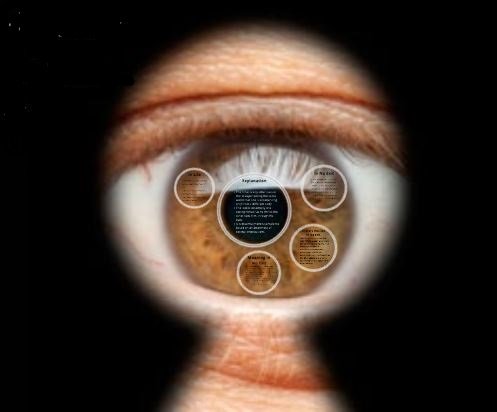
In this point and the following two points we really get into the zone of existential posturing and tautological fancy foot-work, with self conscious word-play, this is classic Sartre territory!
As I noted above with facticity, as a non-philosopher/lay person wading through the tortuous mangling of the English language by philosophers to try figuring out what on earth Sartre meant by the "the other" and "the look" I found both painful and time wasting!
To be charitable to Sartre, he lived in an age before the rise of social media. Fortunately for us we have this as the perfect illustration of what I believe Sartre meant.
In simple terms, we have a view of ourselves that we feel is a true expression of how we are, and then someone comes along and observes us doing something [anything] and we become aware of their "look" and by implication their implied judgement, approval or disapproval of us and this changes how we see ourselves.
This used to be called "worrying about what other people think of us"!
In the social media age, the bar of the facticity of other people's lives is set so high that it can make you feel inadequate.
To make yourself feel better, and reaffirm your attractiveness you post pictures about your life and yourself.
These social media postings are of course curations of discrete packets of events that frame you in the best possible, most sexy and desirable light.
Then you wait for the likes! The more likes the better the outcome. You feel affirmed...until the next time...!
To change gear and use "Sartre" language:
"Seeing the self defined by the view of the other gives rise to a self-reflective consciousness..."
Commentary:
- What Sartre describes is valid but it is about the behaviour of deeply insecure people who are neither secure nor comfortable in themselves.
- Most successful people do not generally overly concern themselves with this, if they did, they wouldn't do what they do and enjoy the success that they do.
- Most good leaders have a similar outlook. They have to, to be a good leader.
- The big take away on this point is to be more aware of the impact of your "look" in your interactions with other people and especially with those with whom you may be in some form of mentoring role or where you are in the role of a person of direct influence.
- “You will become way less concerned with what other people think of you when you realize how seldom they do.” [Mark Twain]
[6] "Angst" and "Dread" - i.e. stage fright at having to make a decision and live with the consequences...

"Existential angst" or existential dread, are terms commonly used by many existentialist thinkers.
The cause of this negative feeling is the fear of exercising your freedom of choice and a feeling of anxiety or, in worse cases, overwhelm at getting it wrong.
It is generally held to be a negative feeling arising from the experience of human freedom and responsibility.
Existential angst/dread is an insecurity about facing the consequences of your actions.
Commentary:
- If Sartre and his existentialist predecessors and peers were really that full of stage-fright, rather than just posturing to polish their existentialist personas and boost their book sales, then quite frankly they were neither ready nor emotionally nor psychologically mature enough to be making those kind of decisions.
- I am going to discuss more fully what I mean by this statement in my concluding analysis and review of existentialism at the end of this article
[7] Despair i.e.
conventional reality is so flaky the existentialist is unable to find
security for his/her sense of identity and is thus in a state of
perpetual despair...
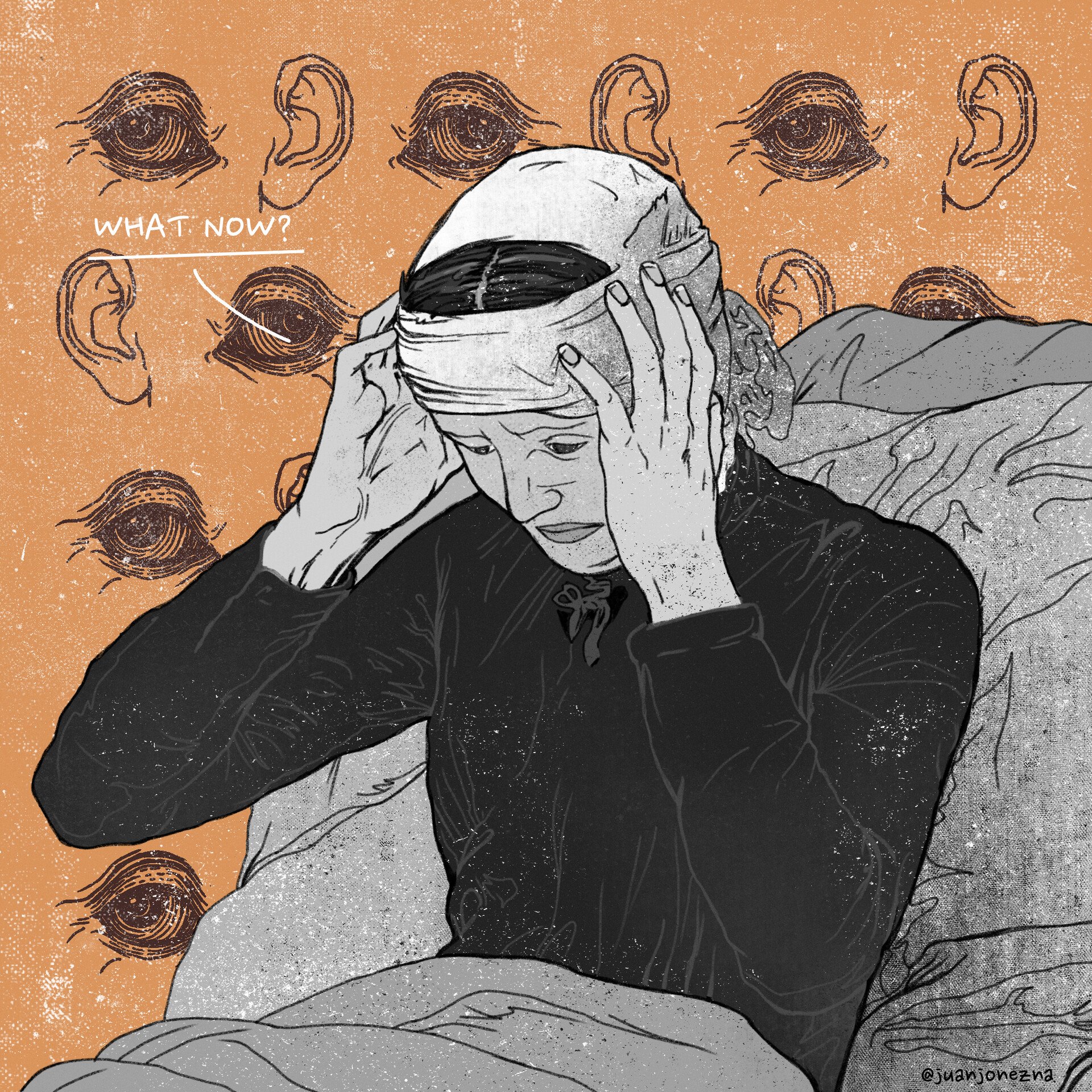
In existentialism, despair is a loss of hope in reaction to a breakdown in one or more of the defining qualities of one's self or identity. For example an opera singer suffers from throat cancer and can longer sing may despair that she has lost her identity because she can no longer be what previously had defined her sense of being.
Of course existentialism take this one stage further and back into the realms of dramatic posturing and as Sartre suggests, since there is no human essence found in conventional reality that is sufficiently robust to constitute the individual's sense of identity, despair is a universal
human condition.
Commentary:
- In the first instance outlined above this is a genuine problem that afflicts many of us. At time of writing in March 2021 as the world edges is way back from the Coronavirus pandemic towards some semblance of normality there are millions of us who have seen our businesses destroyed and our jobs lost through no fault of our own. Times are tough. We suffer. But many of us will eventually regroup and realign our lives to some other purpose. Sadly, some won't be able to do this.
- The second instance is a catch 22. The existentialist has "thrown the baby out with the bathwater" and declared that life is absurd and has torn down and discarded all societal and religious and other belief systems, he/she clearly doesn't have the wherewithal to replace this and is left in the void....
- It is noteworthy that in his last days Sartre could not live with the consequences of his own atheist existential beliefs and Sartre became a Christian believer and called for a priest...
How Does Existentialism Align With The Themes Of This Site?
The purpose of this site is to show you how to cope in tough times, and to
provide you with the tools to do this successfully:
- This all about learning how to think not what to think, and knowing how to apply the most appropriate cognitive processes to the task in hand.
- To really learn how to think effectively we have to learn and master the art of not thinking. A quiet mind is an insightful mind and a resourceful mind.
- The whole point of all this is to empower you because the outcomes that you experience are determined by your responses to the events in your life.
With this in mind, we have no interest in "shooting the breeze" and "chewing the fat" over philosophical ideas and psychological models and theories. This is not an undergraduate discussion forum.
Our focus is intensely practical. Is there something here of practical value that we include in our tool kit and apply in daily life?
[1] Key Themes Of Existentialism That Align With The Objectives Of This Site

- Rising above your circumstances. You are not defined by the facts of your life. It is your human spirit that empowers you and brings a transcendent dimension to your life, and it is here that you truly differentiate yourself, and that over time change the facts of your life.
- The power of framing. How you mentally characterize a situation has a profound impact on how you respond to it emotionally. Your decision to consciously ascribe the meaning of an event or situation, or of life in general, is an empowering position to adopt.
- Living life authentically. Making your own conscious choices rather than doing what some external third party entity or belief system expects you to do is empowering. This does not mean that you will automatically reject others' expectations, it means that whatever decisions you make are your conscious choice.
[2] The Weaknesses Of Existentialism

# Rejecting "Total Truth" and ignoring "Partial Truth"
- It is wise to be wary of any belief system claiming a monopoly on total truth.
- It is foolish to ignore the insights and partial truths within that system.
- We build our personal perspective of "big picture" truth on a raft of partial truths.
# Ignoring thinking skills and cognitive distortions
- Knowing how to think is more important than knowing what to think.
- Attempting to address the big and confusing questions in life without adequate and sufficient proficiency in thinking skills is like trying to grasp a bar of soap in a warm bath in the dark.
- The human capacity for self-deception and miss-perception should never be underestimated. A working knowledge of the main cognitive biases is a prerequisite to applying thinking skills.
# Ignoring the limitations of language and beliefs
- There are profound limitations to language and for all that we gain by being able to articulate a philosophical perspective with dexterous use of tautological fancy footwork we lose an equal if not greater amount of the full potential meaning of that perspective by the very process of articulating it.
- An educated obsession with words ensures that the reader/listener confuses being informed about with having experience of.
- There is always a context, and framing and agenda in the choice and use of words. For example, what I mean to say to you in this article and what you hear may not be the same thing!
- A more resourceful perspective is to view belief systems as a guidance rather than, as presented, as an immutable certainty.
- Beliefs, are there to serve a purpose and to be adapted, adjusted or released when that purpose is served.
# Rationality vs Gnosis - ignoring right brain and the heart
- Rationality is only one [important] aspect of how we find meaning and truth. The traditional scientific and metaphysical approach to this is thought based and uses intellect, rationality and logic etc.
- There is a growing scientific acceptance of the noetic approach to research and discovery.
- What if truth can't be fully known or understood using the faculties involved in scientific method?
- What if we can can only know truth by experiencing it?
- What if the heart is as good, or better, an indicator of truth as rationality?
- What if the existentialists were looking in the wrong place with the wrong tools?
# Not recognising the limits of free choice
- Free choice is a wonderful idea and the words roll of the tongue easily.
- But whilst we may have a free choice in principle, in practice there are considerable limitations and restrictions on our free choice that are not fully recognised by existentialism.
- The list includes but is not limited to the following: genetics, unconscious conditioning and resistance, personality types and thinking styles and the impact of the neurology of the brain
# No place for balance, wisdom, discernment and insight
- Existentialism is good at making the big dramatic soundbite statements about existential angst, dread and despair but I have yet to discover what it has to offer in terms of tools and resources to help those suffering from angst, dread and despair...
- The qualities and skills of a balanced perspective, wisdom and insight and especially discernment are hard earned and much needed.
- It is these qualities that should be the foundation for authentic living and the exercising of free choice together with the robustness to be able accept and live with the responsibilities that come with those choices.
# Ownership & comprehension are precursors to rejection
- Any fool can sound off and reject a belief system or a differing perspective, but the minimum prerequisite for an authentic rejection is a basic comprehension of the strengths as well as the weaknesses of that which is being rejected.
- Unless you have held [owned] a belief and have developed a considerable comprehension of it you are not in a position of sufficient knowledge of the belief system to reject it.
- I fully accept that I may be guilty of this is my treatment of existentialism and if that is the case I will stand the challenge.
Reflections and Action Points
Reflections
Existence precedes essence
- The article states that existentialism holds that you begin “as a clean slate” and your essence (who you are) is formed by your choices.
- Ask yourself: What assumptions do I carry about “who I am” that I may not have consciously chosen?
- Reflect: Are there parts of my self‐image that feel more like inherited roles (family, culture, job) than deliberate commitments?
Framing meaning vs. the absurd
- The article observes that life may appear absurd (random, unfair, without inherent meaning), and existentialism invites you to choose the meaning you assign.
- Reflect: Where in your life right now do you feel “this doesn’t make sense” or “why me”?
- Then ask: What meaning can I choose to assign here (without pretending there was no suffering)?
- Notice your response: Does this feel empowering, or does it feel forced or evasive?
Facticity and transcendence
- “Facticity” refers to the concrete facts of your life (age, gender, job, where you live), and “transcendence” refers to how you relate to those facts (your view of yourself in them).
- Reflect: What are the hard facts of my current life situation that I may feel tied to?
- Then: How could I view myself differently in relation to those facts (transcend them) while still owning them?
Authenticity
- The article defines authenticity as making your own conscious choices, rather than simply playing the roles expected by others.
- Reflect: In what areas of my life am I acting out of habit, expectation or “what someone like me should do” rather than grounded choice?
- And: What would it look like for me to choose differently (even if it’s aligning with expectation) but consciously?
The “Other” and the “Look”
- The piece highlights that how others view us (“the Look”) can shape our self‐consciousness and distort our authenticity.
- Reflect: How often do I find myself making decisions (or resisting decisions) because of how I’ll be seen by others, rather than how I want to act?
- What might shift if I simply noticed that tendency?
Angst/Dread & Despair
- Existentialism emphasises that freedom to choose brings with it “anguish” or “dread” (because choices matter) and that despair may come when identity or purpose feels lost.
- Reflect: When have I felt stuck or overwhelmed by choice? What choices feel heavy right now?
- And: How do I respond when parts of my identity feel threatened or changed? What’s my default?
Limitations & critique
- The article also points out weaknesses: existentialism may overemphasize freedom and under‐emphasize constraints (genetics, conditioning, neurology).
- Reflect: What limitations (personal, structural, biological) might I need to acknowledge, rather than simply “choosing” out of them
- And: How might integrating those constraints give a more realistic, balanced sense of freedom?
Action Points
Weekly choice audit
- Set aside 15 minutes each week. Write down 2-3 decisions you made (big or small).
- For each, ask: “Did I choose this consciously (my values) or by default (habit/expectation)?”
- Highlight any one decision you want to make more consciously next week.
Meaning‐assignment journal
- When you experience a frustrating/unpleasant event (traffic, delay, project setback, etc), stop and ask: “What meaning am I giving this right now?”
- Then ask: “Is this meaning consistent with my values and desired way of living, or is it reactive/unexamined?”
- If reactive/unexamined, consciously assign a more aligned meaning (even if simple: “This is an opportunity to pause”). Record the shift and note how you feel differently.
Transcendence reflection
- Identify one major facticity in your life you feel defined by (e.g., “I am the manager”, “I am the parent”, “I am middle-aged”).
- Write: “Beyond this role/fact, I choose to view myself as…” and complete the sentence with a value-anchored identity (e.g., “a learner”, “a catalyst”, “a clear-minded solver”).
- Each day for a week, remind yourself of that transcendent identity in the context of that facticity (when you are enacting the role).
Authenticity check-in
- Create a simple prompt you will use daily: “Am I doing this because I choose it, or because someone expects me to?”
- Use it before a habitual action: e.g., checking email first thing, responding to a message, commuting pattern, etc.
- If it’s the latter, pause and ask: “If I were consciously choosing this, what would I do instead?”
“Other” awareness experiment
- For one social interaction (online or offline) this week, notice silently: “Am I doing/saying this because of how it will appear to ‘them’?”
- After the interaction, note how you felt, and whether you might do differently next time (e.g., less concern about approval).
Choice anxiety navigator
- When you feel stuck or overwhelmed by a decision, apply this mini-framework:
- [a] List the possible choices.
- [b] For each, note what you would gain, what you might lose (including freedom).
- [c] Ask: “Which option aligns best with my values/identity (transcendent self)?”
- [d] Choose the option you can commit to responsibly (rather than avoid choosing). Log the decision and reflect later on how you feel about it.
Constraint-aware freedom map
- On a page, draw two columns: “Limitations I acknowledge” and “Choices I own”.
- Under “Limitations”, list e.g., health, personality, environment, resources.
- Under “Choices I own”, list what you can choose (e.g., attitude, response, time-blocks, habits).
- Use this map monthly to recalibrate: Accept what you cannot change; focus energy on what you can.
Resources:
The academic view of existentialism:
Stanford University Encyclopedia Of Philosophy
Further reading:
Return to: Home Page
LATEST ARTICLES
The Inner Weight of Shame - Sustained By Attentional Fixation
 A Mind That Is Continuously Engaged In Self-Surveillance. Shame is one of the heaviest inner burdens a human being can carry. It does not announce itself loudly or demand attention through drama. Inst…
A Mind That Is Continuously Engaged In Self-Surveillance. Shame is one of the heaviest inner burdens a human being can carry. It does not announce itself loudly or demand attention through drama. Inst…Does Prayer Work? The Psychology of Prayer, Meditation and Outcomes
 Reality Is A Complex System Of Countless Interactions - Including Yours. So does prayer work? The problem is that the question itself is usually framed in a way that guarantees confusion. We tend to a…
Reality Is A Complex System Of Countless Interactions - Including Yours. So does prayer work? The problem is that the question itself is usually framed in a way that guarantees confusion. We tend to a…Living in Survival Mode Without Surrendering Mental Authority
Living in Survival Mode Without Surrendering Mental Authority
 Clear Thinking When You’re Just Trying to Stay Afloat. Many people today are overwhelmed because they are living in survival mode - not temporarily, but as a persistent condition of life. For many, th…
Clear Thinking When You’re Just Trying to Stay Afloat. Many people today are overwhelmed because they are living in survival mode - not temporarily, but as a persistent condition of life. For many, th…Manifestation Without Magic: A Practical Model
 Manifestation without magic is not a softer or more intellectual version of popular manifestation culture. It is a different model altogether. Popular manifestation teachings tend to frame reality as…
Manifestation without magic is not a softer or more intellectual version of popular manifestation culture. It is a different model altogether. Popular manifestation teachings tend to frame reality as…Staying Committed When You Can't See Progress - The Psychology of Grit
 Uncertainty Is Not The Absence Of Progress, Only The Absence Of Reassurance. One of the most destabilising experiences in modern life is not failure, but uncertainty and staying committed when you can…
Uncertainty Is Not The Absence Of Progress, Only The Absence Of Reassurance. One of the most destabilising experiences in modern life is not failure, but uncertainty and staying committed when you can…The Battle For Your Mind - How To Win Inner Freedom In A Digital Age Of Distraction
 From External Events to Inner Events. We often think of “events” as things that happen out there: the traffic jam, the rude comment, the delayed email reply. But what truly shapes our experience is wh…
From External Events to Inner Events. We often think of “events” as things that happen out there: the traffic jam, the rude comment, the delayed email reply. But what truly shapes our experience is wh…How to See Your Thoughts Without Becoming the Story
 A Practical Guide to Thought-Awareness. You can spend your life inside the stories of your mind without ever learning how to see your thoughts clearly and objectively. Most of the stuff we tell oursel…
A Practical Guide to Thought-Awareness. You can spend your life inside the stories of your mind without ever learning how to see your thoughts clearly and objectively. Most of the stuff we tell oursel…The Collison Decision Matrix - A Simple Framework for Better Choices
 The Collison Decision Matrix Is A Practical Everyday Thinking Tool. Most of us spend a surprising amount of time worrying about decisions. From small ones such as what to wear, what to eat, what to te…
The Collison Decision Matrix Is A Practical Everyday Thinking Tool. Most of us spend a surprising amount of time worrying about decisions. From small ones such as what to wear, what to eat, what to te…The Power Of Asking The Right Question
 The Power Of Asking The Right Question Lies In The Quest For Insight. To experience the power of asking the right question you must develop the practice of asking questions. The best way to improve th…
The Power Of Asking The Right Question Lies In The Quest For Insight. To experience the power of asking the right question you must develop the practice of asking questions. The best way to improve th…Site Pathways
 Here is a site pathway to help new readers of Zen-Tools navigate the material on this site. Each pathway is based around one of the many key themes covered on this site and contain a 150 word introduc…
Here is a site pathway to help new readers of Zen-Tools navigate the material on this site. Each pathway is based around one of the many key themes covered on this site and contain a 150 word introduc…How To Live With Contradiction - Beyond Thought Let Stillness Speak
 A major impact on so many peoples' lives is the situational contradiction of unfilled realistic expectations. So where does all this leave us? Well here we are, with mental equipment that is more lim…
A major impact on so many peoples' lives is the situational contradiction of unfilled realistic expectations. So where does all this leave us? Well here we are, with mental equipment that is more lim…
